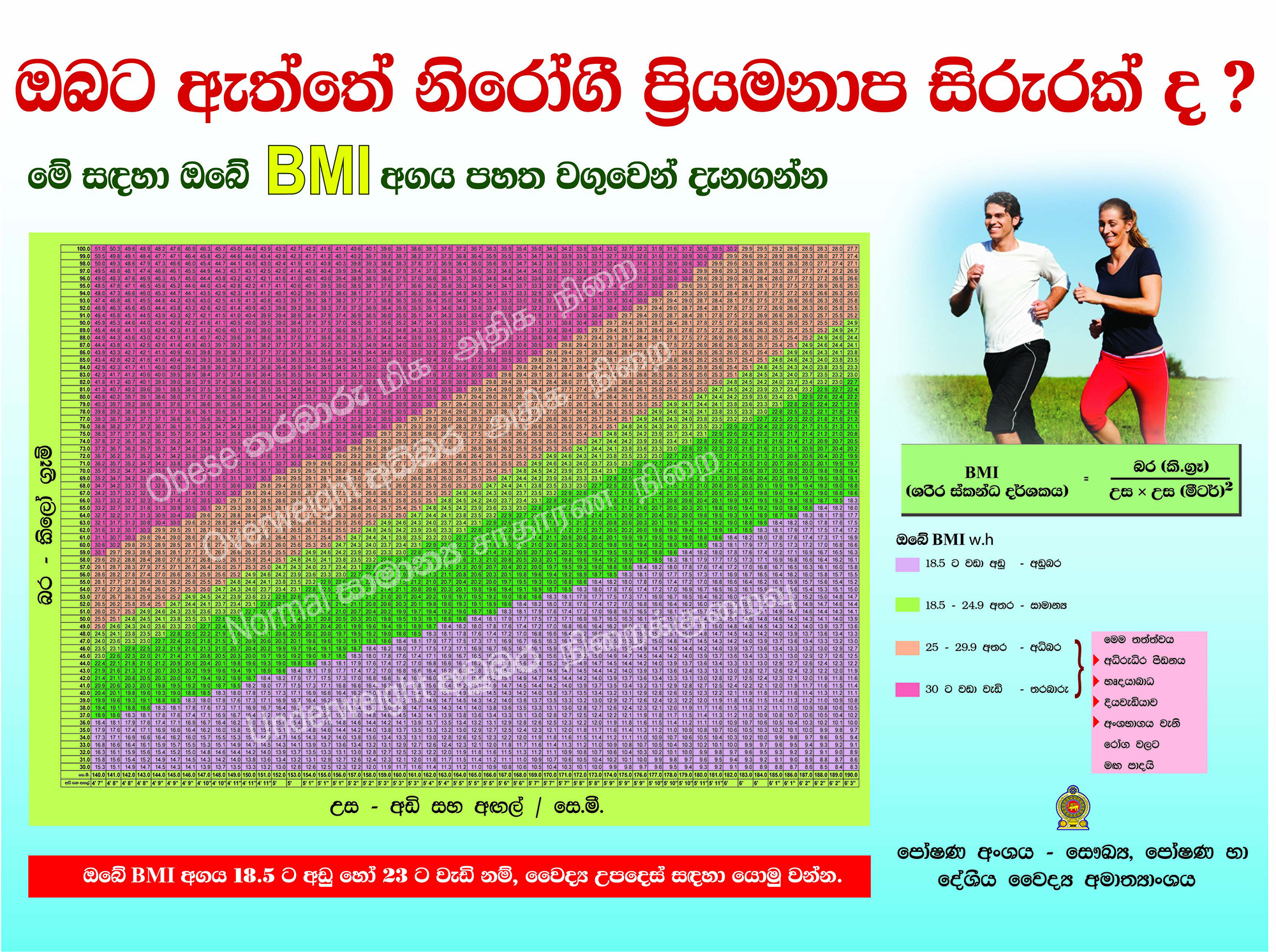FBDG 7
Limit salty food and adding salt to food
The current salt consumption exceeds the recommended amount of less than one teaspoon of iodized salt per person per day. Salt taste is addictive and has negative health implications.
- Adding salt to food at the table and rice when cooking should be avoided.
- Herbs, spices, garlic, and lime/lemon juice can be used to enhance the taste instead of salt and artificial flavour enhancers (e.g. Mono Sodium Glutamate, seasoning cubes) which are high in sodium.
- Increasing the consumption of food containing potassium (e.g. fruits and vegetables), while simultaneously reducing the intake of salt (sodium) helps to maintain healthy blood pressure levels.
- Fresh fish, poultry, and lean meat are healthier options than salted, canned, or other processed products (eg: pickles, lunu dehi, sauce) and salty snacks which are high in sodium.
What is the body mass index (BMI)?
The body mass index (BMI) is a measure that uses your height and weight to work out whether your weight is healthy. BMI is calculated by dividing an adults’s weight in kilograms by their height in meters squared. For example, A BMI of 25 means 25kg/m2. Read More


